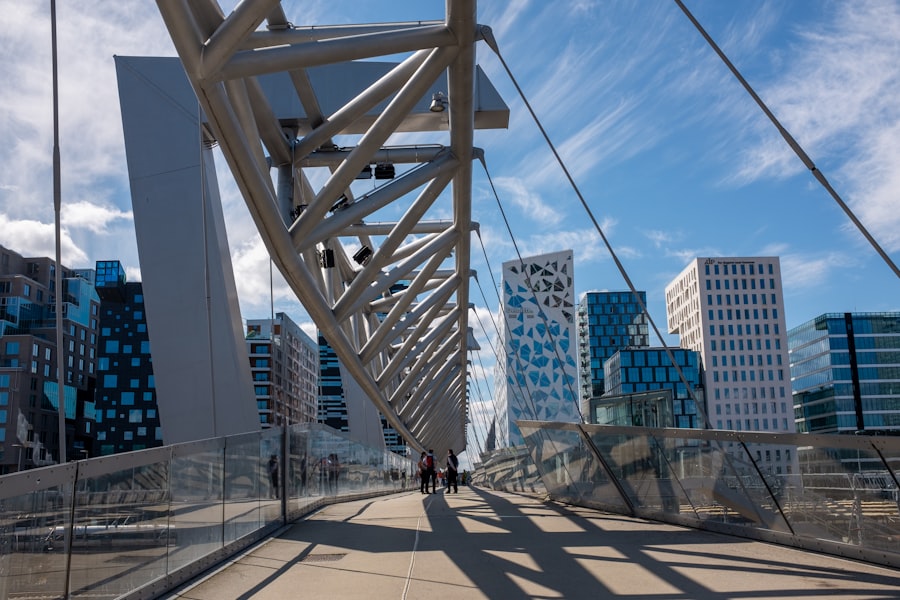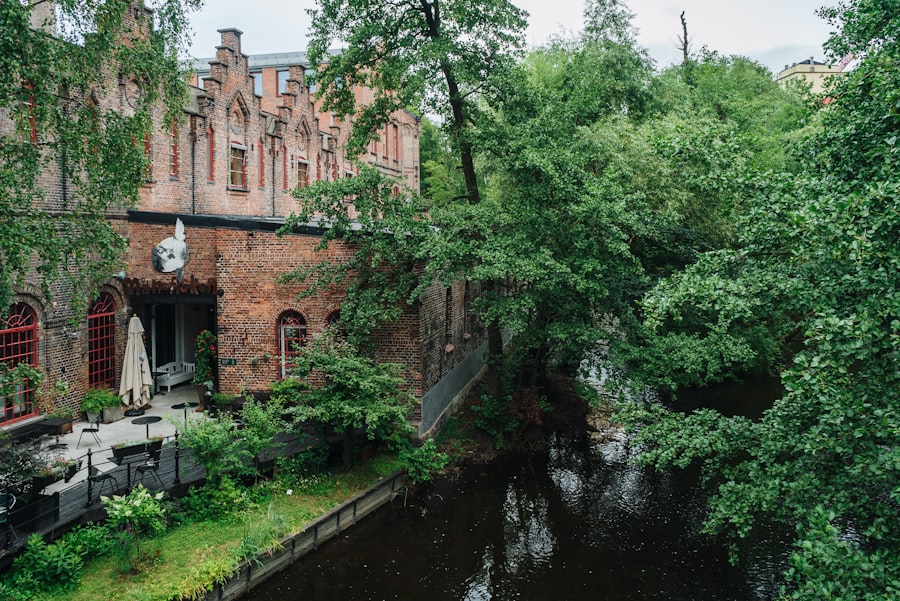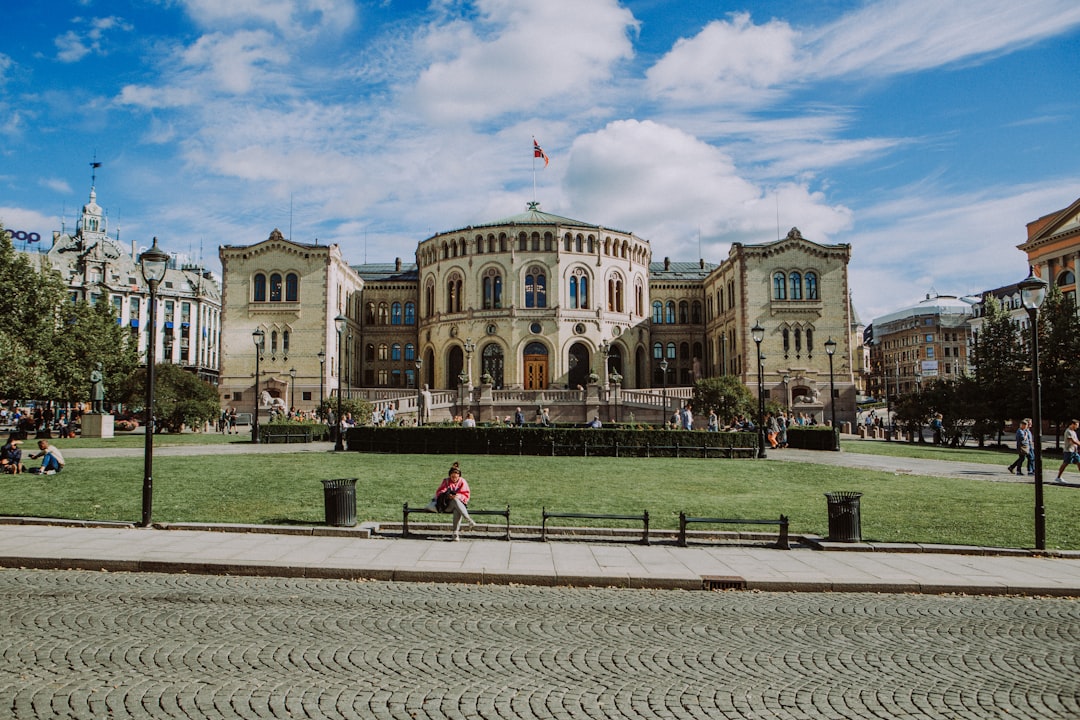Norwegian parenting is often lauded for its unique approach that prioritises the well-being and development of children. Rooted in a culture that values equality, independence, and a strong connection to nature, the parenting style in Norway reflects the broader societal values of the country. Parents in Norway tend to adopt a more relaxed and child-centred approach, allowing children the freedom to explore their surroundings while providing a supportive framework for their growth.
This article delves into various aspects of Norwegian parenting, highlighting its distinctive features and the underlying principles that guide it. The Norwegian way of raising children is not merely a reflection of individual family practices but is also influenced by the country’s robust social welfare system. This system provides families with access to resources that support child-rearing, such as parental leave, subsidised childcare, and healthcare.
As a result, parents can focus on nurturing their children without the overwhelming pressures that often accompany parenting in other parts of the world. The emphasis on community and collective responsibility further enriches the parenting experience in Norway, creating an environment where children can thrive. Schedule a one-on-one consultation with our relocation specialists to simplify your move to Norway.
Summary
- Norwegian parenting emphasises the importance of outdoor play and nature for children’s development and wellbeing.
- There is a strong emphasis on independence and responsibility in Norwegian parenting, encouraging children to take on tasks and make decisions from a young age.
- Gender equality and inclusivity are key values in Norwegian parenting, with efforts made to ensure equal opportunities and treatment for all children.
- The role of social welfare and support systems in Norway plays a significant part in supporting families and children, contributing to a positive parenting environment.
- Norwegian parents strive to balance work and family life, with a focus on spending quality time with their children and being actively involved in their education and upbringing.
The Importance of Outdoor Play and Nature
One of the hallmarks of Norwegian parenting is the emphasis on outdoor play and a deep connection with nature. From an early age, children are encouraged to spend time outside, regardless of the weather. This practice is rooted in the belief that outdoor play fosters physical health, creativity, and resilience.
Norwegian parents often take their children on hikes, skiing trips, or simply to local parks, allowing them to explore their natural surroundings and engage in physical activities that promote well-being. The benefits of outdoor play extend beyond physical health; they also contribute to emotional and social development. Children learn to navigate challenges, develop problem-solving skills, and build relationships with peers through shared experiences in nature.
The Norwegian concept of “friluftsliv,” or open-air living, encapsulates this philosophy, encouraging families to embrace the outdoors as an integral part of their daily lives. By instilling a love for nature in their children, Norwegian parents help cultivate a sense of responsibility towards the environment and a lifelong appreciation for the natural world.
Emphasis on Independence and Responsibility

Independence is a cornerstone of Norwegian parenting, with parents actively encouraging their children to take responsibility for their actions from a young age. This approach fosters self-confidence and decision-making skills, allowing children to develop a sense of agency in their lives. Norwegian parents often give their children opportunities to make choices, whether it be selecting their clothes or deciding how to spend their free time.
This practice not only empowers children but also teaches them valuable lessons about consequences and accountability. Moreover, independence is nurtured through everyday experiences. For instance, it is common for children in Norway to walk or cycle to school alone from a relatively young age.
This practice instils a sense of trust between parents and children while also promoting safety awareness and self-reliance. By allowing children to navigate their environments independently, Norwegian parents prepare them for the challenges they will face as they grow older, equipping them with essential life skills that will serve them well into adulthood.
Gender Equality and Inclusivity
Norwegian society places a strong emphasis on gender equality and inclusivity, which is reflected in its parenting practices. Parents strive to create an environment where both boys and girls are encouraged to pursue their interests without being confined by traditional gender roles. This progressive approach fosters a sense of equality among siblings and peers, allowing children to develop their identities freely.
In practice, this means that household responsibilities are often shared equally between parents, regardless of gender. Children are taught the importance of contributing to family life through chores and responsibilities, reinforcing the idea that everyone plays a vital role in maintaining a harmonious home. Additionally, Norwegian parents actively promote inclusivity by teaching their children about diversity and respect for all individuals, regardless of background or identity.
This commitment to equality not only shapes children’s perspectives but also prepares them to thrive in an increasingly diverse world.
The Role of Social Welfare and Support Systems
The robust social welfare system in Norway plays a crucial role in supporting families and facilitating effective parenting. With generous parental leave policies, subsidised childcare options, and access to healthcare services, parents are afforded the opportunity to focus on nurturing their children without the burden of financial stress. This support system alleviates many challenges associated with parenting, allowing families to thrive.
Moreover, the emphasis on community support further enhances the parenting experience in Norway. Neighbourhoods often foster a sense of camaraderie among families, creating networks where parents can share resources and advice. This communal approach not only strengthens social bonds but also provides children with a broader support system as they grow up.
The availability of resources and support systems ensures that parents can prioritise their children’s needs while maintaining a healthy work-life balance.
Balancing Work and Family Life

In Norway, achieving a balance between work and family life is highly valued. The country’s policies promote flexible working arrangements that allow parents to prioritise their children’s needs without sacrificing their careers. Many employers offer options such as part-time work or remote working arrangements, enabling parents to be more present in their children’s lives while still pursuing professional goals.
This balance is further supported by the cultural expectation that both parents share childcare responsibilities equally. As a result, fathers are increasingly taking on active roles in parenting, challenging traditional norms and fostering deeper connections with their children. This collaborative approach not only benefits families but also contributes to healthier relationships between partners, creating an environment where both parents can thrive personally and professionally.
Parental Involvement in Education
Parental involvement in education is another key aspect of Norwegian parenting. Parents are encouraged to engage actively with their children’s schooling by attending parent-teacher meetings, volunteering at schools, and supporting homework activities at home. This involvement fosters a strong partnership between families and educators, creating an environment conducive to learning.
Norwegian schools also promote open communication between parents and teachers, ensuring that families are informed about their children’s progress and any challenges they may face. This collaborative approach allows parents to provide targeted support at home while reinforcing the values taught in school. By prioritising parental involvement in education, Norwegian parents help cultivate a love for learning that extends beyond the classroom.
Positive Discipline and Communication
Norwegian parenting places significant emphasis on positive discipline techniques that promote respectful communication between parents and children. Rather than resorting to punitive measures, Norwegian parents focus on guiding their children through understanding consequences and fostering empathy. This approach encourages children to reflect on their behaviour while maintaining a strong parent-child bond.
Open communication is central to this discipline style; parents are encouraged to listen actively to their children’s concerns and feelings. By validating their emotions and providing guidance without judgement, parents create an environment where children feel safe expressing themselves. This practice not only strengthens relationships but also equips children with essential communication skills that will serve them well throughout their lives.
Cultural Traditions and Celebrations
Cultural traditions play an integral role in Norwegian parenting, providing families with opportunities to bond and create lasting memories together. Celebrations such as Christmas (Jul) and National Day (17th May) are marked by unique customs that foster a sense of belonging and cultural identity among children. These traditions often involve family gatherings, festive meals, and community events that reinforce social connections.
In addition to national celebrations, many families also engage in local customs that reflect their regional heritage. By participating in these traditions, children learn about their cultural roots while developing an appreciation for diversity within Norway itself. This exposure not only enriches their understanding of their own identity but also encourages respect for other cultures as they grow older.
Nurturing Emotional Wellbeing
Emotional wellbeing is a priority in Norwegian parenting, with parents actively working to create supportive environments where children can express themselves freely. Parents are encouraged to engage in open conversations about feelings and emotions from an early age, helping children develop emotional intelligence and resilience. This focus on emotional wellbeing extends beyond individual families; it is reflected in broader societal attitudes towards mental health.
In Norway, there is a strong emphasis on destigmatising mental health issues and promoting access to support services for families in need. By prioritising emotional wellbeing within the family unit and society at large, Norwegian parenting fosters healthy relationships and equips children with the tools they need to navigate life’s challenges.
Comparison with Other Parenting Styles
When compared with other parenting styles around the world, Norwegian parenting stands out for its emphasis on independence, equality, and emotional wellbeing. While many cultures prioritise academic achievement or strict discipline, Norwegian parents focus on nurturing well-rounded individuals who are equipped for life beyond formal education. In contrast to more authoritarian styles that rely heavily on control and obedience, Norwegian parenting encourages collaboration and mutual respect between parents and children.
This approach fosters creativity, critical thinking skills, and emotional intelligence—qualities that are increasingly valued in today’s rapidly changing world. As families navigate the complexities of modern life, the principles of Norwegian parenting offer valuable insights into creating nurturing environments where children can thrive emotionally, socially, and academically. In conclusion, Norwegian parenting embodies a holistic approach that prioritises independence, equality, emotional wellbeing, and community support.
As families continue to evolve in response to societal changes, the principles inherent in this parenting style provide valuable lessons for parents around the globe seeking to raise resilient and compassionate individuals. For those considering relocating to Norway or immersing themselves further into this enriching culture, the Norway Relocation Group offers invaluable assistance throughout your transition process. Their expertise ensures that you can navigate your new environment smoothly while embracing all aspects of life in Norway.
Additionally, if you wish to fully integrate into Norwegian society or enhance your communication skills within this context, consider enrolling in courses at the NLS Norwegian Language School in Oslo. These courses provide an excellent opportunity not only to learn the language but also to understand cultural nuances that will enrich your experience as you embark on this exciting journey into Norwegian life.
Register for a Norwegian class at the NLS Norwegian Language School now!

